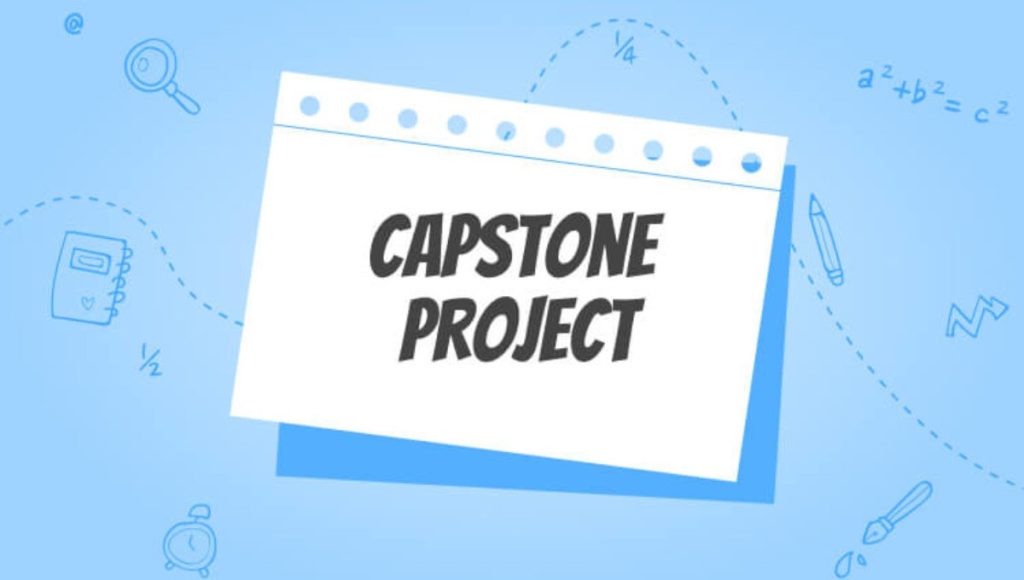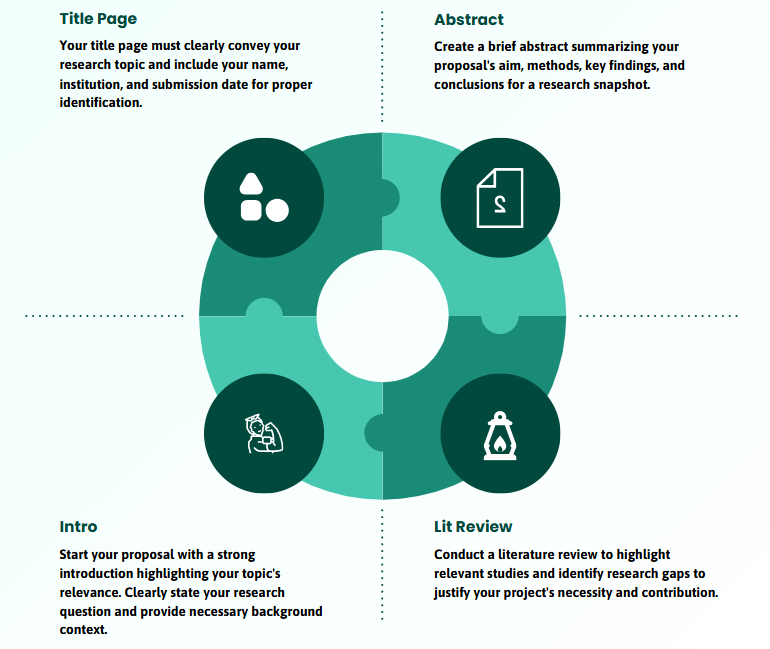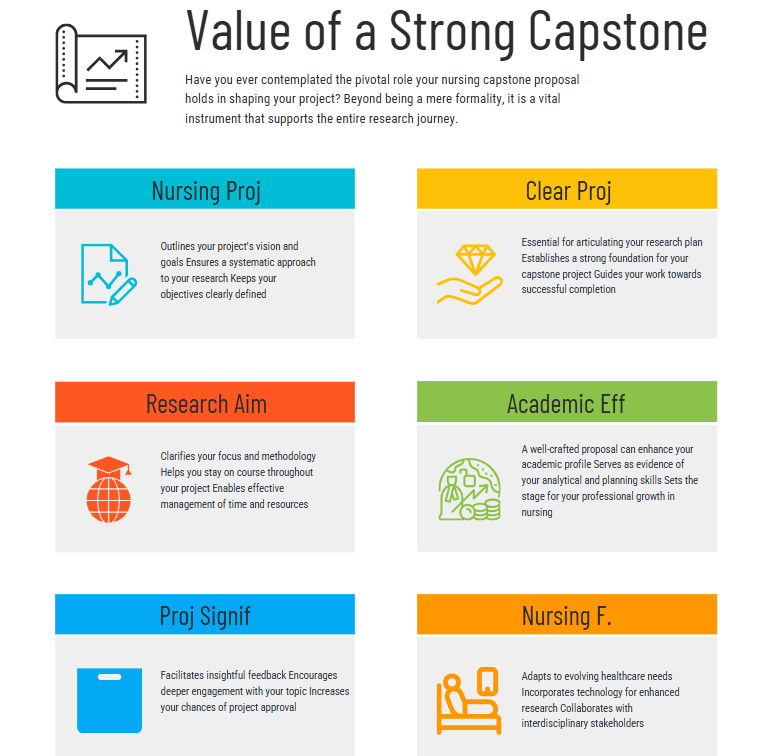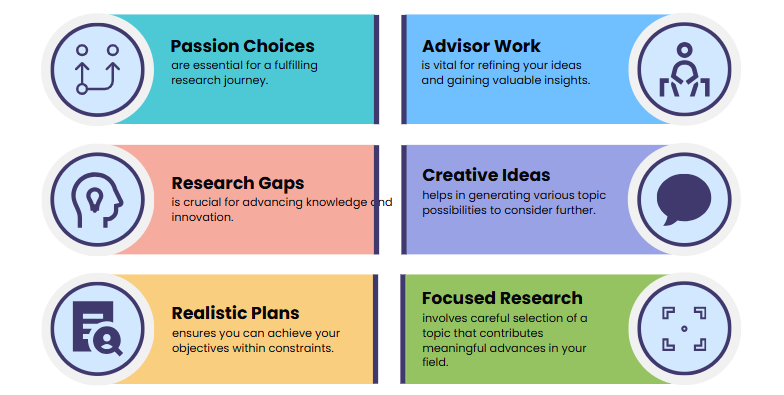
Table of Contents
The nursing capstone proposal is the crucial first step towards completing your nursing program. It’s your chance to showcase your research skills, critical thinking abilities, and dedication to the nursing profession. A well-crafted nursing capstone proposal isn’t merely a formality; it’s a roadmap for your entire project and a persuasive argument for why your research is important and feasible. A weak proposal, on the other hand, can derail your entire capstone experience.
This article will guide you through the process of writing a compelling nursing capstone proposal that will impress your faculty and set you up for success.
Understanding the Purpose of a Nursing Capstone Proposal
Before diving into the specifics of writing, let’s clarify the purpose of a nursing capstone proposal. The primary goal of your nursing capstone proposal is to convince your faculty advisor and committee that your chosen project is:
- Significant: It addresses a relevant and important issue within nursing practice.
- Feasible: It can be realistically completed within the allotted timeframe and resources.
- Original: It contributes new knowledge or insights to the field, even if it’s a small contribution.
- Well-researched: It demonstrates a thorough understanding of the existing literature and relevant theories.
- Methodologically sound: It outlines a clear and appropriate research methodology.
Your capstone proposal is not simply a description of your intentions; it’s a detailed plan of action that demonstrates your ability to conduct independent research. A strong capstone proposal anticipates potential challenges and offers solutions, showing your preparedness for the undertaking.
Steps to Crafting a Compelling Nursing Capstone Proposal
I. Choosing a Compelling Topic for Your Nursing Capstone Proposal:
Selecting the right topic is the foundation of a successful nursing capstone proposal. Your topic should be something you are genuinely passionate about and that aligns with your career goals. Consider these factors:
- Personal Interest: Choose a topic that genuinely interests you; your enthusiasm will shine through in your writing.
- Relevance to Nursing Practice: The topic should address a current issue or gap in knowledge within the nursing field. This will make your nursing capstone proposal more compelling.
- Feasibility: Consider the availability of resources, time constraints, and ethical considerations. An overly ambitious project is a recipe for disaster.
- Literature Review: Conduct a preliminary literature review to assess the existing research and identify a specific niche for your study. This will help you shape your capstone proposal.
Once you’ve identified a potential topic, refine it into a focused research question. This question will guide your entire project and should be clearly stated in your capstone proposal.
II. Structuring Your Nursing Capstone Proposal:
A typical nursing capstone proposal follows a standard structure. While the specific requirements may vary based on your institution, most proposals will include these sections:
- Title Page: A clear and concise title reflecting your research topic.
- Abstract: A brief summary of your entire proposal, including the research question, methodology, and expected outcomes.
- Introduction: Provides background information on the chosen topic, highlighting its significance and relevance to nursing practice. This section should clearly state your research problem and the rationale for your study. This is crucial for your nursing capstone proposal.
- Literature Review: This section demonstrates your understanding of existing research related to your topic. It should synthesize relevant studies, identify gaps in knowledge, and justify the need for your research. A comprehensive literature review is essential for a strong nursing capstone proposal.
- Methodology: This is a critical section of your nursing capstone proposal. It outlines your research design, data collection methods, sample size, data analysis plan, and ethical considerations. Be specific and detailed; leave no room for ambiguity. The clarity of this section is paramount in your capstone proposal.
- Timeline: A realistic schedule outlining the key milestones and deadlines for completing your project.
- Budget (if applicable): If your project requires funding, include a detailed budget outlining all anticipated expenses.
- References: A complete list of all sources cited in your proposal, following a consistent citation style.
- Appendices (if applicable): This section may include supplementary materials such as questionnaires, interview guides, or consent forms. These are sometimes essential to a fully realized nursing capstone proposal.

III. Writing a Compelling Nursing Capstone Proposal:
Beyond the structure, the quality of your writing significantly impacts the success of your nursing capstone proposal. Keep these points in mind:
- Clarity and Conciseness: Use clear and concise language, avoiding jargon and technical terms that your audience might not understand.
- Logical Flow: Ensure a logical flow between sections, with smooth transitions between ideas.
- Strong Argumentation: Present a compelling argument for the significance and feasibility of your research. Justify your choices at every stage of your nursing capstone proposal.
- Proper Citation: Adhere strictly to the required citation style to avoid plagiarism. Proper citation is crucial for the credibility of your nursing capstone proposal.
- Professionalism: Maintain a professional tone and style throughout your proposal. Proofread carefully for any grammatical errors or typos. This reflects on the overall quality of your nursing capstone proposal.
IV. Seeking Feedback on Your Nursing Capstone Proposal:
Before submitting your nursing capstone proposal, seek feedback from your faculty advisor and other trusted individuals. Their insights can help you identify areas for improvement and strengthen your proposal. Don’t hesitate to revise your nursing capstone proposal based on the feedback received. Multiple revisions often lead to a much stronger final product.
V. Addressing Potential Challenges in Your Nursing Capstone Proposal:
Anticipate potential challenges in your research and address them proactively in your proposal. This demonstrates your preparedness and thoughtful planning. For example, if you plan to interview participants, discuss potential challenges in recruitment and data collection, and how you will address these. This is vital for a successful nursing capstone proposal.
The Importance of a Strong Nursing Capstone Proposal:
Your nursing capstone proposal serves as a blueprint for your entire project. A well-written proposal not only secures approval for your project but also guides your research process, ensuring that you stay on track and meet your objectives. The clarity and thoroughness demonstrated in your nursing capstone proposal will be reflected in the quality of your final capstone project. This document is a testament to your capabilities as a future nursing professional. A strong nursing capstone proposal makes a significant impact on your overall academic journey.

Avoiding Common Pitfalls in Nursing Capstone Proposals
The nursing capstone proposal is a crucial stepping stone towards completing your nursing program. It’s the blueprint for your final project, a chance to showcase your acquired knowledge and skills while contributing meaningfully to the field. However, many students stumble along the way, falling into common pitfalls that can derail their progress. Avoiding these mistakes is key to producing a strong and successful nursing capstone proposal.
1. Lack of Clarity and Focus: One of the most prevalent pitfalls is a lack of clarity and focus in the research question or problem statement. A vague or overly broad topic makes it impossible to conduct a thorough investigation within the constraints of a capstone project. The nursing capstone proposal needs a sharply defined research question that guides the entire process. Instead of aiming for something too ambitious like “improving patient care,” consider a more focused topic such as “evaluating the effectiveness of a new pain management protocol in post-surgical patients.” A clearly articulated research question dictates the scope of your study and prevents the project from becoming unwieldy.
2. Inadequate Literature Review: A robust literature review forms the cornerstone of any strong nursing capstone proposal. Many students fail to conduct a comprehensive review, relying on limited or outdated sources. This weakness undermines the proposal’s credibility and demonstrates a lack of understanding of existing research in the chosen area. A thorough literature review should critically analyze relevant studies, identify gaps in knowledge, and justify the chosen research methodology. The nursing capstone proposal should demonstrate mastery of the subject matter through a sophisticated analysis of existing literature.
3. Weak Methodology: The methodology section of your nursing capstone proposal details how you will answer your research question. A weak methodology often stems from an inadequate understanding of research designs and appropriate data collection methods. Choosing an inappropriate methodology or failing to justify the chosen approach weakens the proposal’s overall strength. The proposal must clearly articulate the research design (qualitative, quantitative, or mixed methods), data collection instruments, sampling techniques, and data analysis plans. A well-defined methodology section instills confidence in the feasibility and rigor of the proposed study.
4. Unrealistic Timeline and Scope: Overambitious projects often doom even the most well-intentioned nursing capstone proposals. Students often underestimate the time and resources required for data collection, analysis, and writing. Setting unrealistic goals leads to rushed work and a compromised final product. The nursing capstone proposal must include a realistic timeline that breaks down the project into manageable tasks. This allows for effective time management and prevents the student from being overwhelmed. The scope of the project should be carefully considered, ensuring it’s achievable within the given timeframe and resources available.
5. Poorly Defined Outcomes and Significance: A successful nursing capstone proposal clearly articulates the expected outcomes and the significance of the research. Many proposals fall short by failing to adequately explain how the findings will contribute to nursing practice or policy. The nursing capstone proposal must clearly demonstrate the potential impact of the study, highlighting its relevance to the nursing profession and broader healthcare system. The anticipated results and their implications should be clearly stated, demonstrating a clear understanding of the potential contribution to the field.
6. Ignoring Ethical Considerations: Ethical considerations are paramount in any research project, particularly in the healthcare setting. A nursing capstone proposal that neglects ethical aspects, such as informed consent, confidentiality, and data security, is fundamentally flawed. The proposal must clearly outline how ethical standards will be maintained throughout the study, ensuring the protection of participants’ rights and welfare. Ignoring this crucial element can lead to rejection or even serious ethical breaches.
By carefully considering these common pitfalls and proactively addressing them during the proposal writing phase, students can significantly increase their chances of developing a strong and successful nursing capstone proposal. A well-structured and meticulously planned proposal not only sets the foundation for a high-quality capstone project but also demonstrates the student’s readiness to contribute to the ever-evolving landscape of nursing practice.
Frequently Asked Questions about Nursing Capstone Proposals
The nursing capstone project is a culmination of your nursing education, a chance to showcase your research and critical thinking skills. Many students find the process daunting, particularly the initial stage of crafting the nursing capstone proposal. To alleviate some of this anxiety, we’ve compiled answers to frequently asked questions about this crucial step.
What exactly is a nursing capstone proposal?
A nursing capstone proposal is a formal document outlining your planned research project. It’s essentially a detailed roadmap that demonstrates your understanding of the project’s scope, methodology, and anticipated outcomes. Think of it as a persuasive argument for why your chosen topic deserves attention and how you plan to address it rigorously. A well-written nursing capstone proposal will secure approval from your faculty advisor and pave the way for a successful capstone project.
What should be included in my nursing capstone proposal?
While specific requirements vary between institutions, most nursing capstone proposals include the following key components:
- Introduction: This section provides background information on the chosen topic, highlighting its significance within the nursing field. It should clearly state the problem or issue you intend to address and the gap in knowledge your research will fill.
- Literature Review: A comprehensive review of existing literature relevant to your topic is crucial. This demonstrates your understanding of the current state of research and how your project builds upon or challenges existing knowledge. This section should logically lead to your research question.
- Research Question/Hypothesis: Your proposal must clearly articulate your research question or hypothesis. This is the central focus of your study and should be specific, measurable, achievable, relevant, and time-bound (SMART).
- Methodology: This section details your research design and methods. Will you use a quantitative, qualitative, or mixed-methods approach? Specify your data collection techniques (e.g., surveys, interviews, chart reviews), your sample size and selection method, and your data analysis plan.
- Timeline: A realistic timeline outlining the key milestones of your project is essential. This shows your faculty advisor that you have a well-thought-out plan for completing your work within the allotted timeframe.
- Budget (if applicable): Depending on the nature of your project, you may need to include a budget outlining anticipated costs.
- References: A comprehensive list of all sources cited in your proposal, following a consistent citation style (e.g., APA).
How do I choose a suitable topic for my nursing capstone proposal?
Choosing a topic is often the most challenging aspect. Consider your interests and passions within nursing, while also thinking practically. Is the topic feasible within the timeframe and resources available? Look for areas where there’s a gap in knowledge or where existing research could be improved upon. Discuss potential topics with your faculty advisor early in the process; they can offer valuable guidance and feedback.

How long should my nursing capstone proposal be?
The length of your nursing capstone proposal will vary depending on your institution’s requirements. However, it is generally expected to be a substantial document, often ranging from 10-20 pages. It needs to be comprehensive enough to clearly articulate your research plan but concise enough to be easily readable and understood.
What if my proposal is rejected?
Receiving feedback, even negative feedback, is a vital part of the learning process. Don’t be discouraged if your initial capstone proposal requires revisions. Your faculty advisor will provide constructive criticism to help you refine your project and strengthen your proposal. Use their feedback to improve your methodology, refine your research question, or address any weaknesses identified in your initial submission.
Completing a successful nursing capstone project requires careful planning and execution. The nursing capstone proposal is the cornerstone of this process. Addressing these frequently asked questions and investing time in thoughtful preparation can significantly increase your chances of creating a compelling and successful proposal, paving the way for a rewarding and enriching capstone experience. Remember to utilize your faculty advisor as a resource throughout the entire process. Their expertise will be invaluable in guiding you to produce a strong nursing capstone proposal and ultimately, a high-quality capstone project.
The Bottom Line
Crafting a compelling nursing capstone proposal requires careful planning, thorough research, and clear writing. By following these guidelines, you can create a proposal that showcases your abilities and sets the stage for a successful capstone project. Remember, your nursing capstone proposal is a reflection of your commitment to excellence and your potential as a future nurse leader.
Your dedication to detail will reflect well on the final product, and a well-crafted capstone proposal paves the path to a successful and impactful capstone experience. The time and effort you invest in your nursing capstone proposal are crucial for your academic success. A polished and insightful nursing capstone proposal reflects well on your commitment to the field of nursing.
Get Professional Nursing Capstone Project Writing Help
At PhD Nurse Writer, we can help you to craft an authentic and impactful nursing capstone proposal. Our service covers capstone proposal writing, proofreading, editing, formatting and plagiarism removal. We can also assist you in writing nursing research papers, case studies and essays conveniently.





